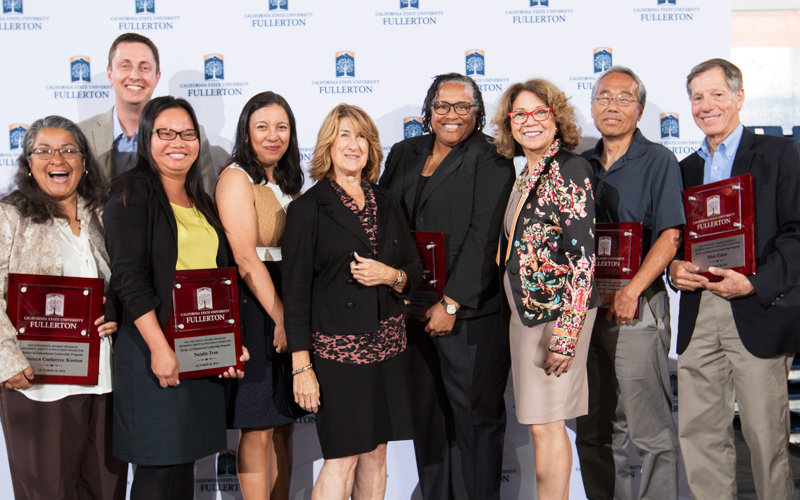
Faculty members of the College of Education’s doctoral program in educational leadership have fostered the importance of just, equitable and inclusive education to their students — they “walk the talk.”
These core values are built into every course and practically every assignment that doctoral students complete in the Ed.D. program, said John L. Hoffman, chair and associate professor of educational leadership. To further “walk the talk,” faculty members revised the evaluations students complete at the end of every course to include questions that directly address aspects of diversity, equity and inclusion as they relate to teaching and learning.
“The changes to put just, equitable and inclusive education at the heart of our program have not always been easy,” Hoffman added. “Most of our students have not studied in diverse classrooms and they have not had faculty of color as instructors. When they start, our students have to learn ways that are more inclusive. It’s hard work, but it’s also exciting because that’s what we want to see in our schools and community colleges.”
For their efforts to prepare educational leaders who actively promote the concepts of diversity, equity and inclusion, the doctoral program faculty received the University’s 2016 “Diversity, Equity and Inclusion Award.”
This accolade, presented at the recent University Awards Program, recognizes those who demonstrate positive interactions with others and exhibit respect for those with differing backgrounds and points of view within the campus community.
In addition to Hoffman, who directs the doctoral program, faculty members recognized are: Meri Beckham, Daniel Choi, Ding-Jo Currie, Marc Ecker, Eugene Fujimoto, Jennifer Goldstein, Rebecca Gutierrez Keeton, Carol Lundberg, Ron Oliver, Dawn Person, Natalie Tran and Estela Zarate.
This academic year marks the program’s 10th anniversary. Over the past decade, 172 doctoral degrees have been awarded, and of these graduates, 22 percent have been Hispanic, nearly 17 percent Asian-Pacific Islanders and 14 percent black.
This year’s incoming class is both the largest, with 50 students, and most racially diverse — 70 percent are nonwhite — in the program’s history, Hoffman noted.
The Educational Leadership Department has also increased the number of diverse faculty members. A decade ago, 17 percent of the full-time faculty members were people of color, and today, that number has climbed to 54 percent.
The students themselves study problems facing schools and community colleges — and then put into practice what they’ve learned. Dissertations have focused on such issues as Lao-American community college student success, LGBTQ school administrators, disability compliance law and career development among undocumented students.
“We’re not studying schools and colleges from the outside in. We’re rolling up our sleeves, getting in there, and creating change from the ground up and from the inside out,” said Hoffman. “Cal State Fullerton is preparing a diverse student body to not only succeed, but to change the world by changing schools and colleges.”